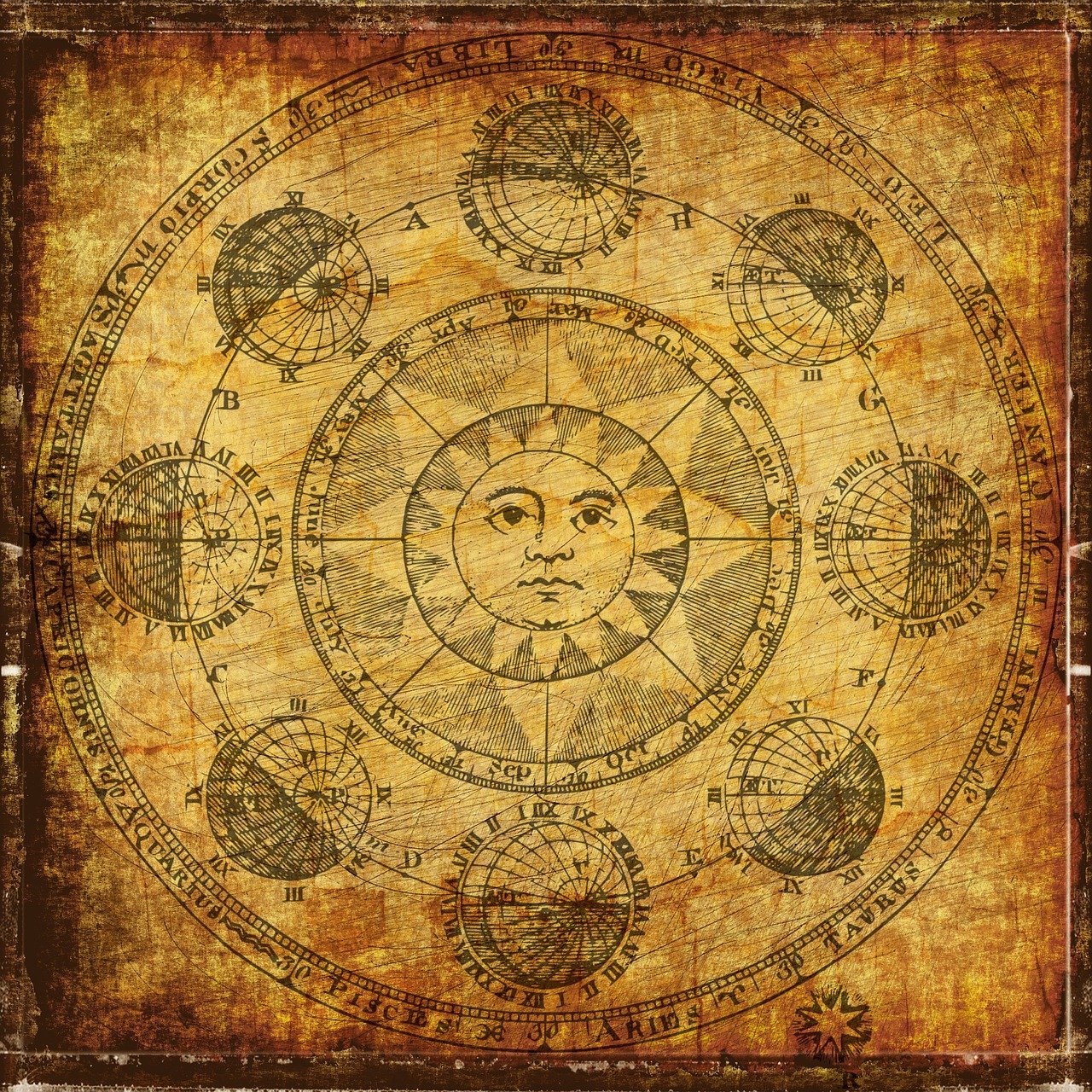This post was originally published on Astrology News Service
Lynne Hyde
Astrology has been a part of life since the 2nd millennium BC. It is the earliest organized and recorded system of human understanding. It suggests that there is a relationship between the celestial bodies, human lives and events on earth. The moment of the first breath taken at birth is looked up in a table called an Ephemeris where the planets’ cyclical positions are recorded. Astrologers then create “a chart” and interpret the four components of astrology. These are the Planets, the Signs, the Houses and the Aspects. When combined, they describe the individual and the events that are to unfold. The concept is: “As Above, So Below.”
These parts form the basic alphabet of how astrology is understood to work. They will be briefly reviewed and given keywords to help those new to understanding and utilizing the ancient celestial language.
THE PLANETS: The Planets are the “actors on the stage.” Each of the ten planets in the sky represents a specific action that needs to be taken or a trait that wants to manifest.
SUN: Life Force, Identity and Self-Expression.
MOON: Feeling, Sensing, Family and Belonging.
MERCURY: Thinking, Communicating and Rationality.
VENUS: Love, Value, Beauty and Money (Feminine).
MARS: Force, Aggression and Action (Masculine).
JUPITER: Expansion, Abundance, Beliefs and Opportunity.
SATURN: Contraction, Realism, Somberness and Difficulty.
URANUS: Disruption, Revolution and Unexpected Change.
NEPTUNE: Illusions, Confusion and Transcendence.
PLUTO: Transformation, Death, Power and Control.
THE SIGNS: The Signs describe how the Planets, the actors on the stage, are dressed, the textures and the tones of their costumes. They signify how the Planets express themselves. They are the twelve 30-degree sectors which make up the 360 degrees that the Earth travels in its orbit around the Sun.
ARIES: Assertive, Independent, Courageous and Fiery.
TAURUS: Practical, Fixed, Stable and Earthy.
GEMINI: Communicator, Dualistic, Changeable and Airy.
CANCER: Feeling, Sensitive, Nurturing, Protective and Watery.
LEO: Dramatic, Creative, Courageous and Proud Leaders.
VIRGO: Serves Others, Useful and Detail Oriented.
LIBRA: Social, Needs Balance and Harmony and creates Beauty.
SCORPIO: Intense, Passionate and Deep with Control Issues.
SAGITTARIUS: High Minded, Freedom and Truth Seeking.
CAPRICORN: Conservative, Dependable, Steady and Cautious.
AQUARIUS: Humanitarian, Individualistic and Progressive.
PISCES: Empathetic, Emotional, Intuitive and Vulnerable.
THE HOUSES: The Houses are the twelve different stages that the Actors (Planets) in their Costumes (Signs) perform on. Each House symbolizes a different area of life. The houses are dependent on where you are on the planet, as they are based on which sign of the zodiac (area of sky) is rising on the horizon in that location. Each house is approximately 30 degrees and it takes about 4 minutes for each degree to rise, as the earth revolves on its axis.
1st House, Called the Ascendant or Rising Sign: Persona, Outer Appearance, Identity and “Self-Hood.
2nd House: Values, Self Worth and Personal Finances.
3rd House: Communication, Schooling, Siblings and Neighbors.
4th House, Called the Nadir: Home, Real Estate, Family and Ancestry, End of Life. What’s Unconscious.
5th House: Love Affairs, Celebrations, Children and Creativity.
6th House: Daily Work, Health, Pets and One’s Routine.
7th House, Called the Descendant as the Sun Sets Here: Partnerships, “The Other,” All Relationships Outside of Self.
8th House: Joint Finances, Death, Sex, Taxes and Inheritances.
9th House: Higher Education, Philosophical Beliefs, Travels.
10th House, Called the Midheaven: Point of Power, Career, Status, What’s Conscious and Visible.
11th House: Friends of Like Mind, Hopes and Dreams.
12th House: Spirituality, What’s hidden, Mysteries and Endings.
The Ascendant, Midheaven, Descendant and Nadir are at the Angles of the chart. This is where the sun rises at dawn, reaches the top of the chart at noon and then sets at dusk and is at the bottom of the chart at midnight. These houses are considered to be the “skeleton” of the chart. When planets are found in these areas they hold more power and significance.
THE ASPECTS: The planets all orbit around the Sun, and how close or how far away they are from the Sun determines the time it takes to complete their cycles. The Moon travels around the earth in one month, which creates the New Moon (Sun and Moon together) and the Full Moon (Moon opposite the Sun, Earth in the middle). As the planets move they make aspects to each other in their revolution. These aspects, which are the specific degrees of distance between the planets, create an effect on how the planetary energy is expressed.
CONJUNCTION: Planets 0 degrees apart. This is when both planets’ energies blend together and signifies the start of a new cycle between the two. This is generally powerful and beneficial.
SQUARE: Planets 90 degrees apart. This is the planetary energy at a “cross road”. Both energies want to express them-selves but find it difficult because of the angled distance between the two. It’s challenging and generally signifies a crisis point in the cycle.
TRINE: Planets 120 degrees apart. This is a point in the cycle when both planets are able to work together and blend their energies. This is generally harmonious and easier.
OPPOSITION: Planets 180 degrees apart. This is when the planets are opposite each other. Each planet is trying to express itself but finds it hard because they are “Facing Off”. This is the peak of the cycle and it’s generally a time of stress and unease.
After opposition, these aspects repeat in reverse order until we return to the conjunction, and a new cycle begins.
In the practice of astrology, astrologers consider and combine the Planets, the Signs and the Houses they are in and the Aspects between the planets to determine what kind of energy will be expressed through individual lives and what kind of event will take place on earth.
Share Our Story
- Somewhere Over the Rayne Beau
https://astronomologer.com/somewhere-over-the-rayne-beau/





